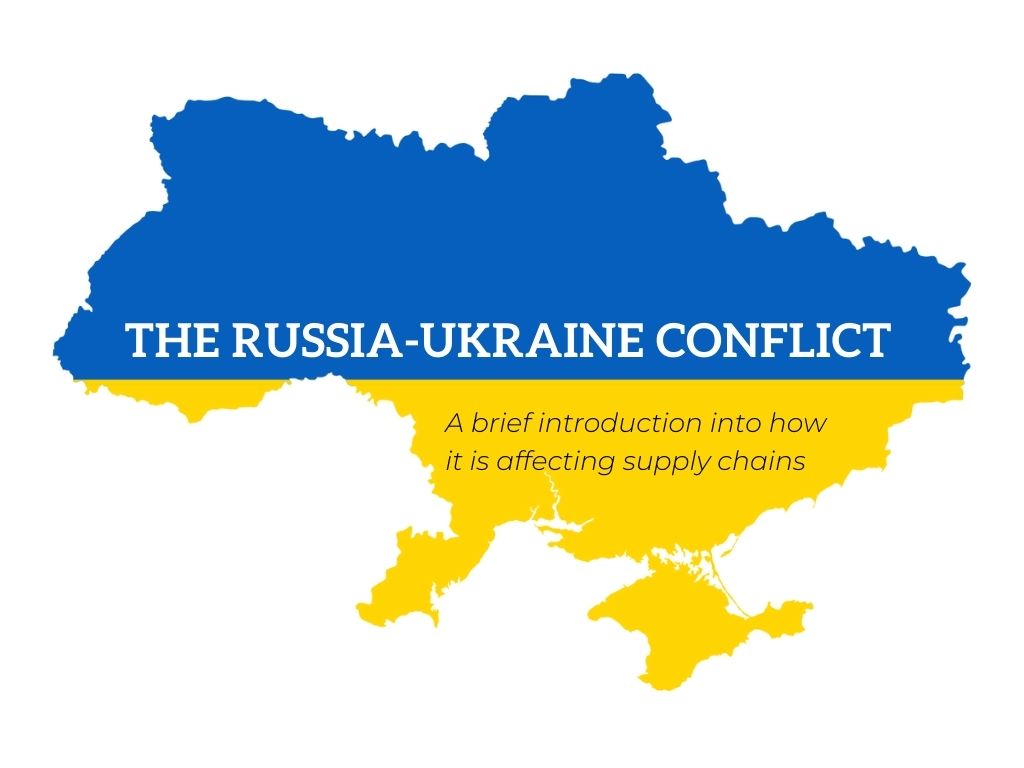
Russia and Ukraine need no introduction; both nations are both home to a wealth of natural resources that contribute to supply chains across the globe. For Russia, Putin’s homeland supplies a host of other nations with its gas reserves, while Zelensky’s Ukraine produces raw materials for the tech industry as well as exporting key foodstuffs.
It’s clear then that the recent Russia-Ukraine conflict will gravely affect MNC supply chains, and will require organizations to consider changing their transnational management strategies.
Will Europe’s Supply Chains Be Affected?
In short, yes, and the squeeze is already being felt among many European countries as they try to reach satisfy the social expectation of not being seen associating with Moscow. Though the UK department for Business, Energy & Industrial Strategy (2022) reported that the nation was reliant on less than 4% of Russian gas for its total gas supply in 2021, Centrica-owned British Gas (the UK’s largest energy company) has announced its end of purchasing gas from Russian suppliers, like Russian-run Gazprom.
This distancing strategy is likely to be replicated by the EU, who rely heavily on Russian gas (41% of EU imports in 2019). Internationally high gas prices are a key indication that strategic changes in transnational management are required to diversify supply chains, minimizing the impact of global events on sufficient energy provision.
European organizations are also bearing the first brunt of the conflict through the loss in Ukrainian and Russian food exports. This is especially prevalent in cereal exportation, where Ukraine is the second-largest exporter. These two nations account for more than 30% of the global wheat trade, 32% of the barley trade, and over 50% of trade in sunflower oil, seeds, and meals.
Russia is also the largest exporter of fertilizer, but with sanctions on these exports and Russian-government supported cease of production, companies are struggling to purchase enough supplies. Without fertilizer, agriculture production will suffer, contributing to the inflated prices in grains and seeds that are already being felt through the lack of Ukrainian exports. This will, in turn, be detrimental to the meat and dairy industry, inflating prices of livestock feed. It is evident, then, that MNCs will have to rethink their supply chains, and turn to lean on nations elsewhere.
Will Taiwan Supply Chain Be Impacted?
Russia and Ukraine are both giant exporters of natural resources that are essential to chipmaking, such as neon, palladium, and krypton. According to the Financial Times, Ukraine supplies the US with more than 90% of neon specifically for semiconductors, and contributes to 40% of the global supply of krypton. In turn, Russia provides the US with 35% of its palladium supply. This could be a cause for crucial concern for American semiconductor manufacturers, like Apple.
Not so for Taiwan’s TSMC, the world’s largest contract chipmaking manufacturer that, unlike other organizations, expects to see minimal effect on production from the conflict. Reuters notes that this could be due to lack of heavy reliance on Ukraine and Russia for neon and palladium. Taiwan instead relies on “diversified supply chains”, and its own ability to “refine” and “remanufacture”’ palladium. The government believes that they have stockpiled sufficient oil reserves and neon stocks to minimize the short-term impact of the Russia-Ukraine conflict.
That being said, TSMC still relies on external suppliers for resources. Dutch ASML Holdings, one of TSMC’s suppliers, receives 20% of its neon from Ukraine and Russia. Unfortunately, no matter how confident a company (like TSMC) is in their supply chain, it is likely that all chips requiring neon in production will be affected by the conflict.
Conclusion
The Russia-Ukraine conflict has and will continue to have a significant effect on the transnational organizations. Most importantly, as has been mentioned in each of the three industries provided, organizations will start diversifying their supply chains to relieve the pressure of the conflict and move towards a more ethnocentric perspective. Organizations should, therefore, take this conflict as a sign to develop new technologies and use these innovations to decrease dependency on others.
♥️ If you liked this article, you may also enjoy…